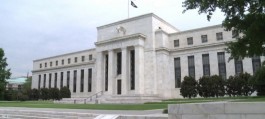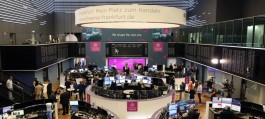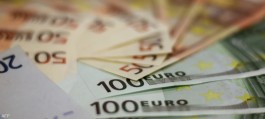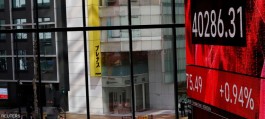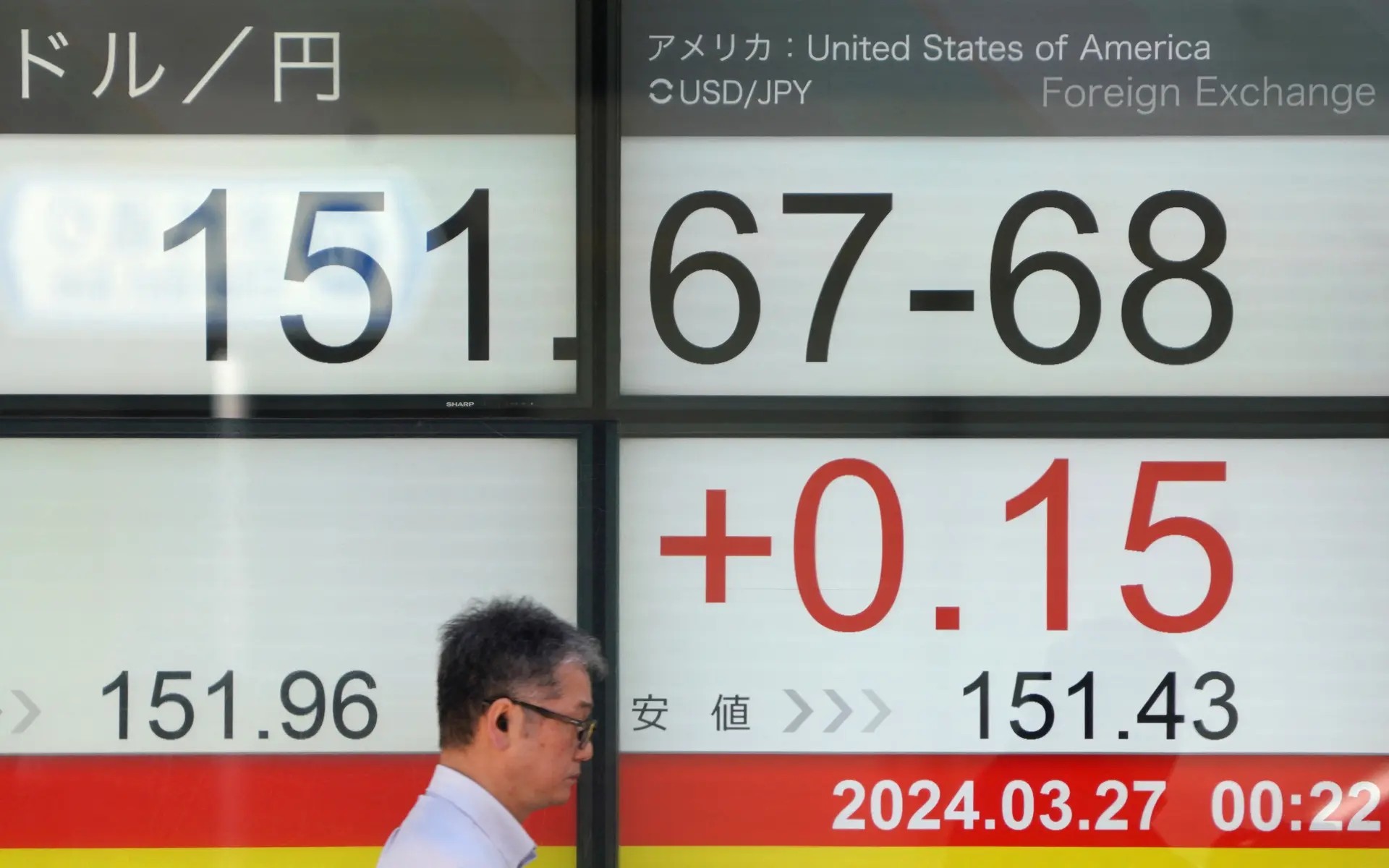Japanese stocks rose sharply, leading gains in Asia as they clawed back some of the losses from a global rout that wiped billions of dollars off markets from New York to London. U.S. stock futures also rose and Treasuries fell.
Japan's main stock indexes rose nearly 11 percent after falling more than 12 percent the previous day, while South Korea's Kospi rose more than 3 percent.
Stocks in Hong Kong and China were flat. Early positive signs suggest traders are catching their breath after a dramatic day that saw Wall Street’s fear gauge — the VIX — hit its highest level since 1990.
“With Japanese stocks rebounding, the rest of Asia is likely to bounce back today,” said Tomo Kinoshita, global markets strategist at Investco Asset Management in Tokyo. “Since the magnitude of the decline in Japanese stocks yesterday was much larger than in Europe and the US, market participants now realize that yesterday’s correction in the Japanese market was overdone.”
Speculation of an impending US recession, waning enthusiasm for artificial intelligence, and a rising Japanese yen that led to the liquidation of carry trades led to a three-day sell-off in global stocks.
What are curry deals?
Carry trades are an investment strategy in which a currency with a low interest rate is borrowed and the borrowed money is used to purchase another currency with a higher interest rate. The basic idea is to profit from the difference between interest rates. For example, an investor might borrow Japanese yen at a very low interest rate and then invest that money in higher-yielding U.S. bonds.
Veteran market expert Ed Yardney said the selloff is somewhat reminiscent of the 1987 crash, when the U.S. economy avoided recession despite investor fears at the time. Analysts at JPMorgan Chase and Morgan Stanley expect stocks to remain under pressure.
The Japanese yen fell as much as 1.5 percent on Tuesday before recovering some of its losses. However, the Japanese currency is still up about 11 percent this quarter amid expectations of a rate hike by the Bank of Japan.
The sharp decline in Japanese markets may have been exacerbated by forced margin selling. Margin buying by individual investors surged to an 18-year high in late July even as the Nikkei 225 index slipped from its all-time high. Investors who bought stocks on credit are often forced to close their positions when stock prices fall more than expected, unless they have enough extra cash to provide collateral.
Japan's main stock indexes entered a bear market on Monday after the Japanese yen rose, the Bank of Japan tightened monetary policy and the U.S. economic outlook deteriorated.
Japan's finance ministry will sell 2.6 trillion yen (about $18 billion) in bonds due in June 2034 after the yield on the 10-year note fell 20.5 basis points on Monday, the biggest drop since 1999.
U.S. Treasury yields also rose across the curve in Asia, with the yield on the benchmark 10-year note rising five basis points to 3.84 percent. The yield had fallen to 3.67 percent on Monday before rebounding on a stronger-than-expected U.S. ISM services report.
“The stronger-than-expected ISM services report stopped the bleeding on Wall Street, so we’re not seeing a risk-on rally so much as a healthy correction after an oversold run, driven by investors fleeing for a small exit,” said Matt Simpson, chief market analyst at City Index.
The S&P 500 fell 3% on Monday, its biggest daily decline since September 2022, while the fear volatility index, or VIX, jumped to 38.57.
S&P 500 and Nasdaq 100 futures rose in Asian trading hours on Tuesday.
In a related context, San Francisco Federal Reserve President Mary Daly said that the labor market is declining and indicated that the US central bank should begin cutting interest rates in the coming quarters, but the US labor market has not reached the point of concluding that it has begun to weaken seriously.
Markets now expect the Federal Reserve to cut interest rates by about 50 basis points in September, while data compiled by Bloomberg and reviewed by Sky News Arabia shows that expectations of interest rate cuts in the coming months have intensified in Korea, Thailand and Malaysia.
Veteran market expert Ed Yardney said the current sell-off in stocks is somewhat similar to the 1987 crash when the U.S. economy avoided recession despite investor fears at the time.
“This is very reminiscent of 1987 to this day,” Yardeni told Bloomberg in an interview. “We had a stock market crash — it happened basically in one day — and the implication was that we were in a recession or about to go into one. And that never happened. It was more about the internal conditions of the market.”
















